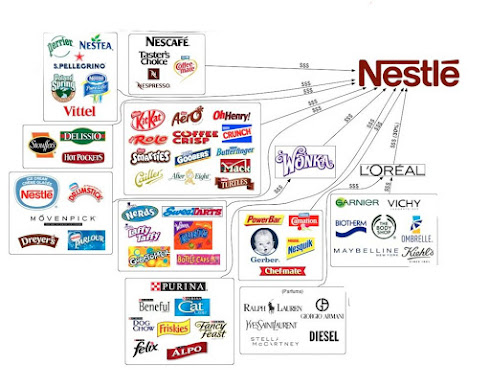People love to hate, and they really love to hate on big companies – whether or not they have a reason to. I especially dislike it when the latter happens. Companies (big companies included) are the very backbone of our economy, and they often get a bad rep for little or no reason. But sometimes there is a reason, or as in this case, several solid reasons, as we’ll see below. Which brings me to the next point: why are we writing this article? ZME Science is a science website (crazy, right?), and this is not strictly science, at least not in the way our regular articles are. But we also write about environmental issues, especially when they affect many of us, and especially when we can make a difference.
Nestle is a Swiss multinational food and beverage company. According to Wikipedia, their products include baby food, bottled water, breakfast cereals, coffee and tea, confectionery, dairy products, ice cream, frozen food, pet foods, and snacks. Twenty-nine of their brands have sales of over $1 billion a year and have over 8,000 brands. They have 447 factories across 194 countries and employ around 333,000 people. They truly are what you would call a giant. They’re also considered to be one of the best employers in Europe with six LEED certifications and sponsor numerous activities and sustainable projects. Looking at only these stats, it would seem that Nestle is one of the “good guys”… but then why are they so hated? Let’s take it step by step. (more...)
One of the mysteries of my youth is the career trajectory of my American college don. After being thrown out of seminary, he graduated from Columbia University as an English major. He was a Peace Corps volunteer and was thrown out of a Central American country for suspicion of being a CIA agent. At my college, he schmoozed among a milieu of fascists, Freemasons, and Salon Marxists. I had a conversation with the dean about what seemed to me very inappropriate behavior for a don at a Canadian university. Soon afterward, his academic career terminated and he re-emerged as an executive-level manager at Nestle Canada. What kind of connections did he have to land a job like that, straight out of academia? How do all these data points connect? Does any of this connect to the college's most famous dead socialite, Honey Sherman?

No comments:
Post a Comment